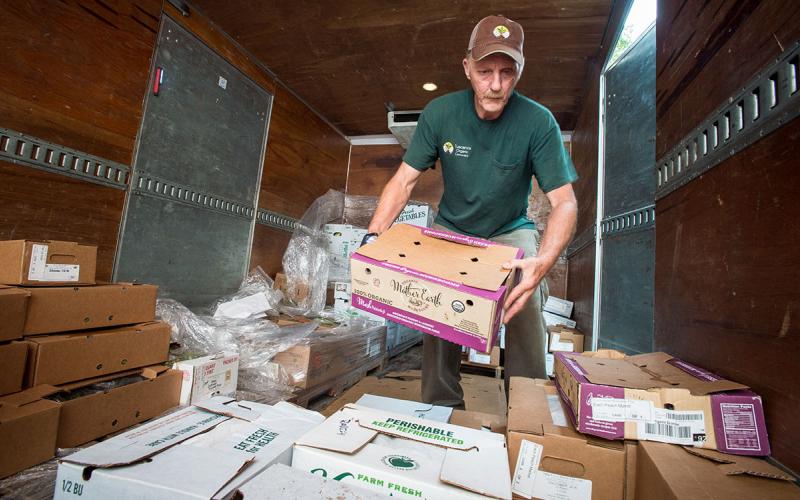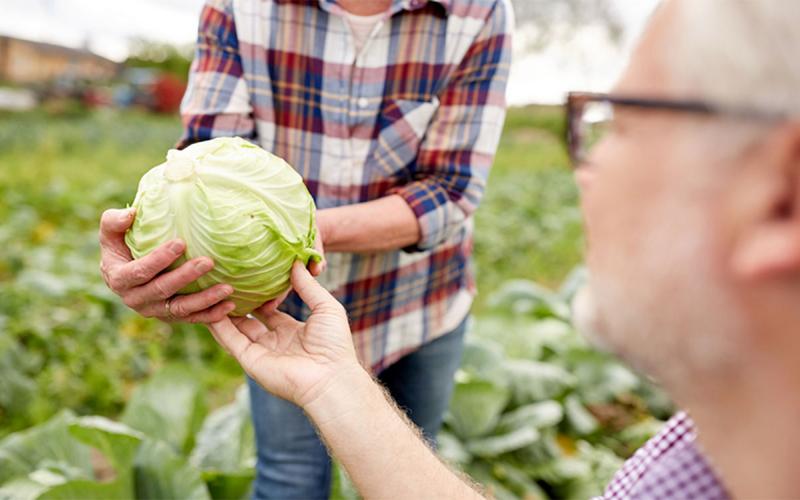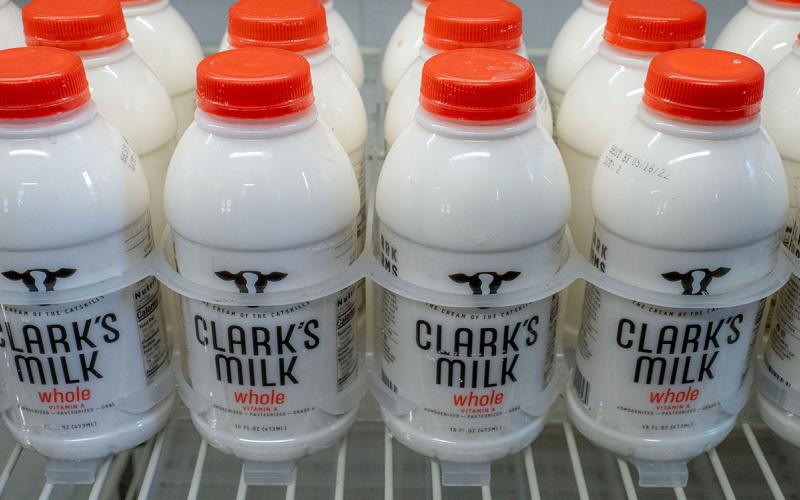Written collaboratively by Curtis Braun and Joan Hegerfeld-Baker (former SDSU Extension Food Safety Specialist). Reviewed by John Osburn (Health Facilities Surveyor, South Dakota Department of Health – Office of Health Protection).
Growers and food processors that market fruits at the farmers market often have questions regarding the regulations for selling fruit products. The regulations are in place to address the food safety risks associated with different fruit products and the manner in which they are marketed.
Refer to the scenarios below that are reflective of regulations related to direct marketing fruits and fruit products at the farmers market.
Definitions that are helpful in understanding the scenarios:
- Grower (or producers) is the person raising and harvesting the fruit.
- Processor is the person that is changing the fruit from its original state from when it is harvested. The grower and processor may be the same person.
- Consumer is the person that is eating and preparing the fruit or fruit product for their family.
Scenario #1
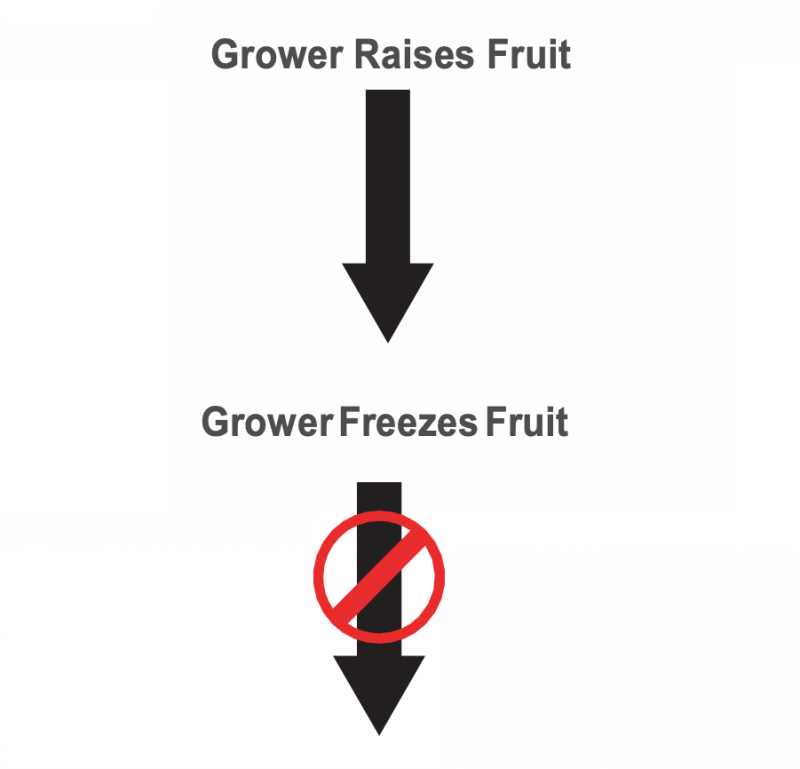
Grower sells frozen fruit directly to consumer. Process needs to be conducted in a licensed kitchen. The process of slicing, and preparing fruit carries a high risk for contamination of food. Freezing does not destroy pathogens that commonly transfer from hands to fruit (i.e. Staphylococus, Norovirus, Hepatitis A Virus and other microorganisms that can make people very sick).
Scenario #2

Grower sells to food processor to make jams, jellies, syrups and juice. Not a direct sale to consumer – does not qualify for as home processed food that can be sold at farmers markets and similar venues.
Scenario #3
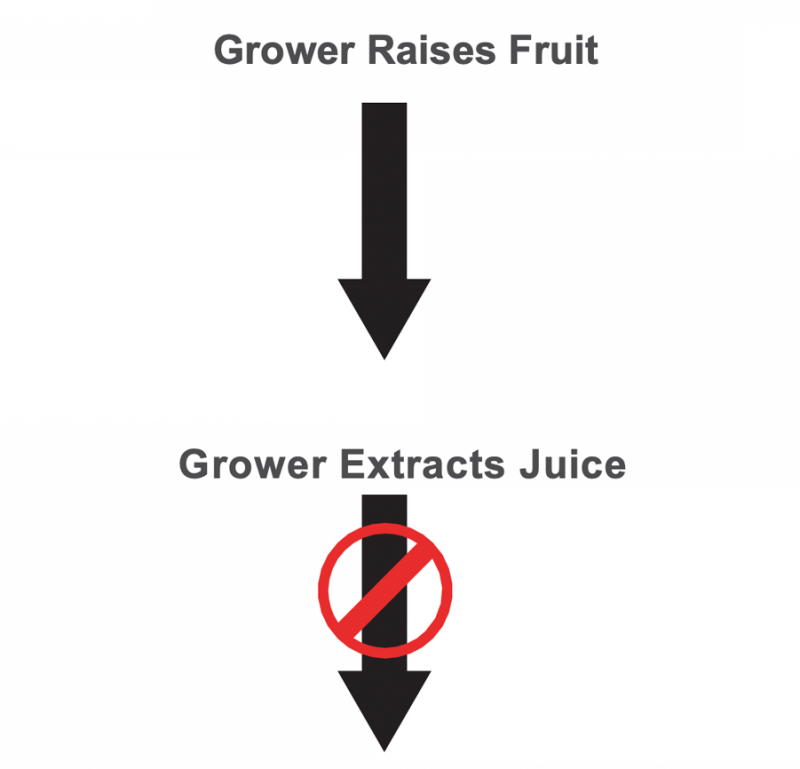
Grower sells fresh juice. This is a product that must be temperature controlled for safety. Fresh juice must be processed and marketed through a licensed (inspected) kitchen.
Scenario #4
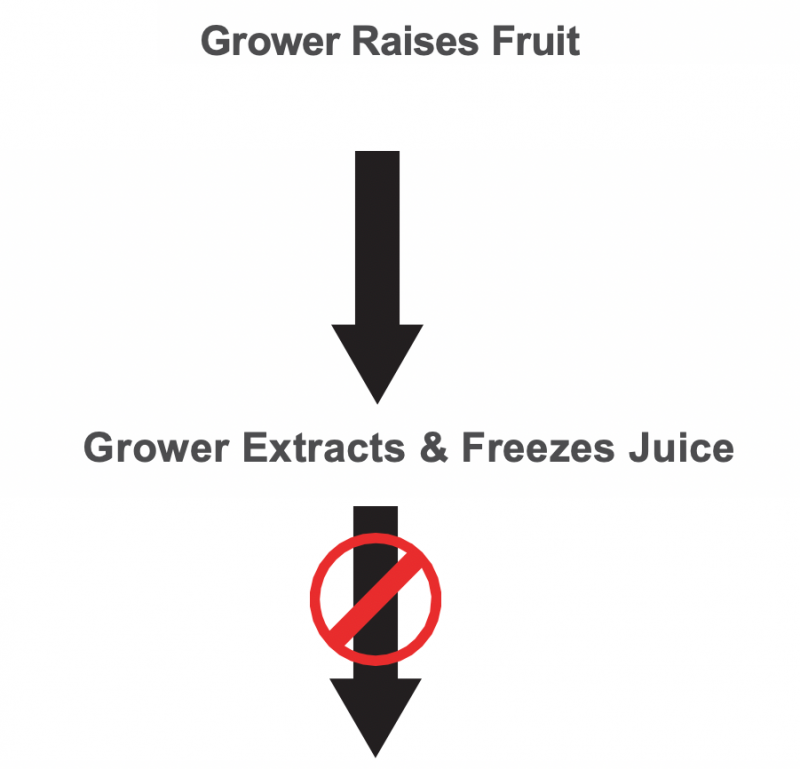
Grower sells frozen juice directly to consumer. The process of extracting and freezing juice must be temperature controlled during the entire process of extraction and preparation for freezing. Therefore this process must be conducted in a licensed (inspected) kitchen.
Scenario #5
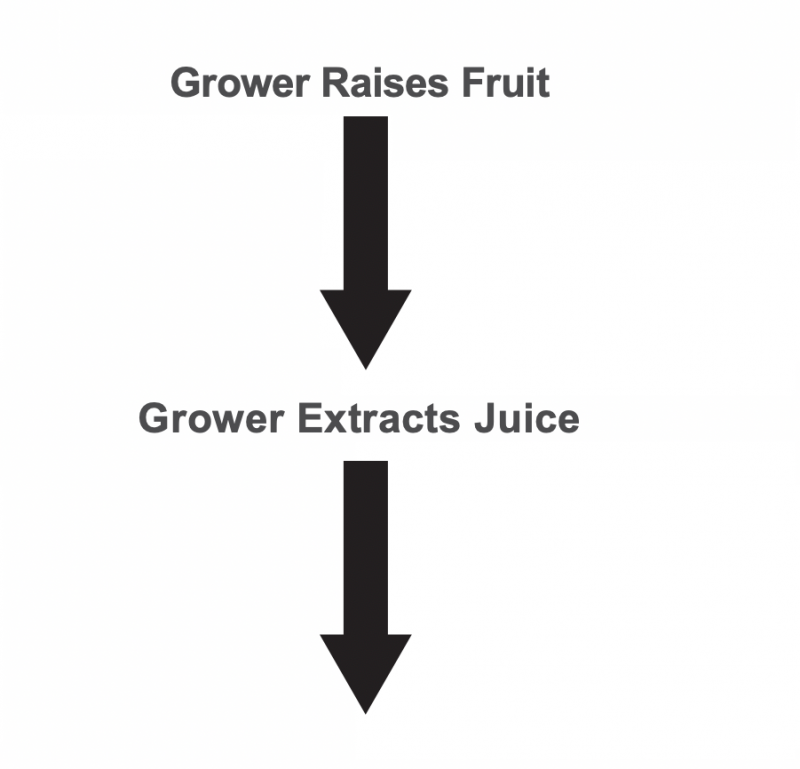
Grower conducts a thermal process of juice that is shelf-stable in a hermetically sealed container and sold at the farmers market.
Thermal (heat) processed juices that are shelf stable and sold at the farmers market must be approved through a processing authority that has credentials that include extensive training, knowledge and experience with thermal processing systems, containers, and juice products. Contact the SDSU Extension Food Safety Specialist.
Scenario #6
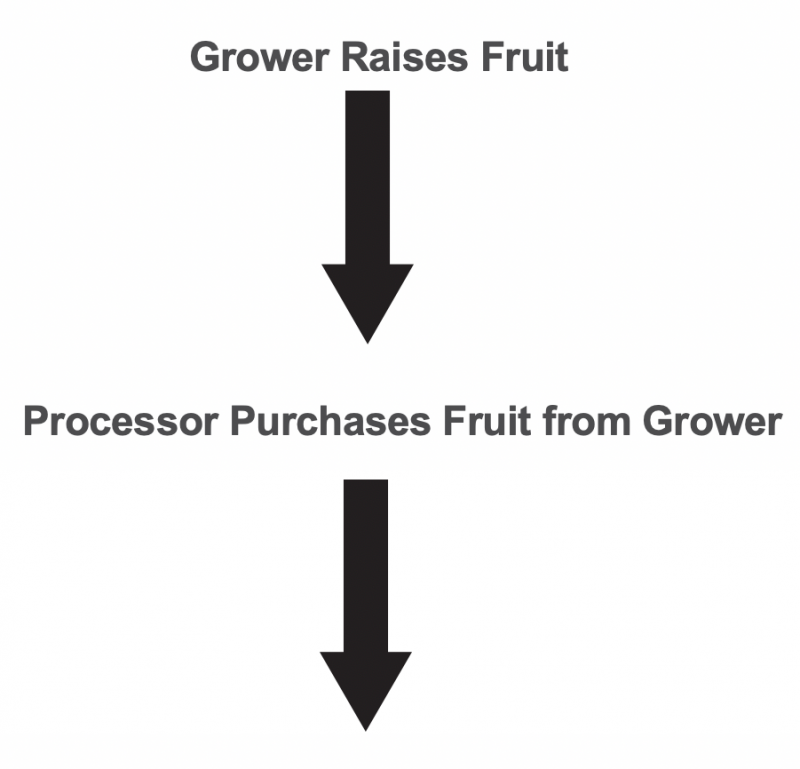
Processor makes jams or jellies or syrup.
- Process must be approved by an acid food processor in South Dakota.
- If processed in a home, unlicensed, kitchen the product can be sold at farmers markets and similar venues.
Scenario #7
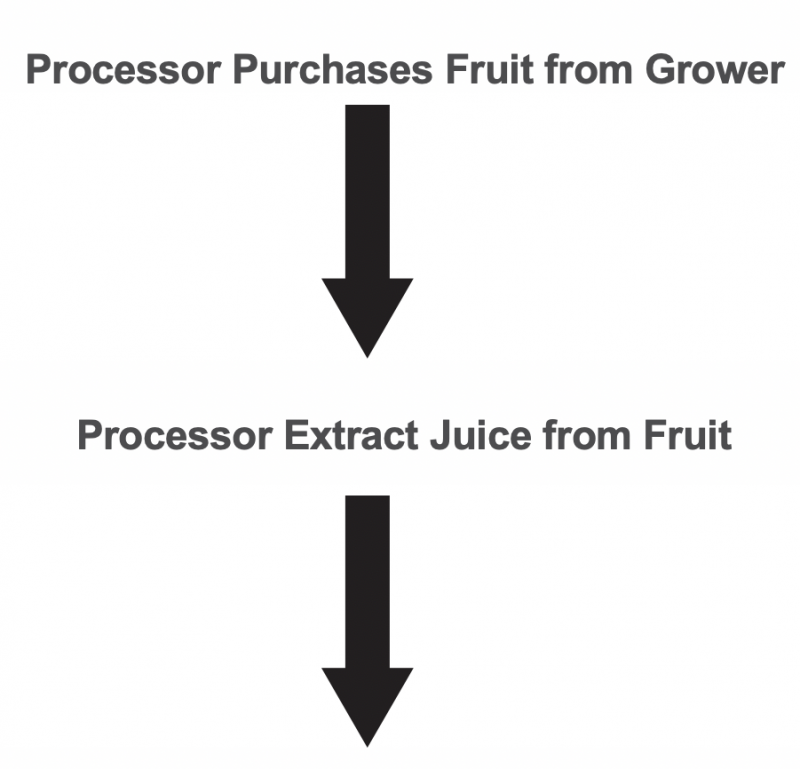
Processor thermally processes juices in a hermetically shelf-stable container for resale.
Thermal (heat) processed juices that are shelf stable and sold at the farmers market must be approved through a processing authority that has credentials that include extensive training, knowledge and experience with thermal processing systems, containers, and juice products. Contact the SDSU Extension Food Safety Specialist.
